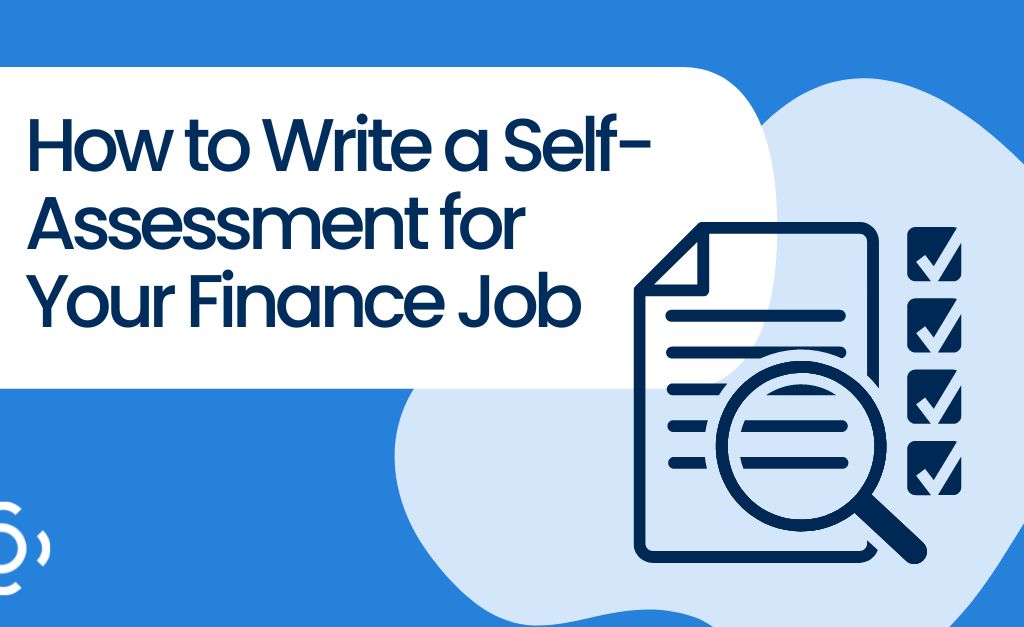Even if you don’t have any plans to write the next great American (or Canadian) novel, you may still be judged for your prowess with prose. Here are some tips for improving your skills as a writer.
Could a missing comma in your cover letter cost you a job interview?
It could, if you’re applying to work at iFixit. Last year, the popular online repair manual and community’s CEO, Kyle Wiens, caused a stir on the interwebs, with an op-ed piece he wrote for the Harvard Business Review, provocatively titled: “I Won’t Hire People Who Use Poor Grammar.”
Describing his company’s practices of screening applicants for writing skills and testing new hires for grammar, Wiens argued that candidates whose correspondence and cover letters are riddled with serious grammatical errors or show generally poor writing skills “deserve to be passed over for a job — even if they are otherwise qualified for the position.” Whether they’re aware of it or not, a candidate’s writing and grammar speak to their overall professionalism and attention to detail. “Applicants who don’t think writing is important,” he suggested, “are likely to think lots of other (important) things also aren’t important.”
Whatever you might think of this zero tolerance policy on grammar (it sparked a pretty lively debate in the comments section and throughout the blogosphere at large), Wiens’ arguments underscore the growing importance of writing across many industries today — accounting and finance included. Like most professionals, accountants are expected to be able to write competently. No, you probably won’t find proficiency with the written word listed as a formal requirement for most accounting or finance positions, but that’s because it’s often simply assumed that candidates will be able to write (reasonably) well. After all, even if it’s not actually included in their official job description, writing has become an integral part of every accountant’s job.
But what if writing isn’t exactly your forte? Fortunately, there’s plenty you can do to step up your game as a writer, even if you don’t have much of a natural talent for it. Writing, after all, is as much nurture as nature. As the U.S. novelist Sinclair Lewis explained: “Writing is just work – there’s no secret. If you dictate or use a pen or type or write with your toes – it’s still just work.” So long as you’re willing to put in that work, there’s no reason you can’t improve your writing. Here, then, are six quick and general tips to help you get started.
1. Read more
You’ve probably heard it before, but most educators and writing professionals agree that one of the best (not to mention most enjoyable) ways to learn and master the rules of the language is to read more. It’s not a coincidence that the most skilled writers are also often the most avid readers. Just as you can improve your public speaking skills by emulating other experienced orators, so you can passively learn from the example of others’ writing. Among other things, reading regularly can expand your vocabulary and variety of sentences, as well as introduce you to new idioms, expressions, and turns of phrase. Regardless of whether you prefer fiction or non-fiction, sci-fi or autobiographies, reading can also enlarge your creative horizons and knowledge base, which will indirectly contribute to your writerly performance.
As the U.S. novelist Sinclair Lewis explained: “Writing is just work – there’s no secret. If you dictate or use a pen or type or write with your toes – it’s still just work.”
When it comes to choosing reading material, the genre or medium don’t matter nearly as much as the quality. It’s okay to be a bit of a snob if you want to get more out of your reading experiences. Enjoy sitting down with the newspaper in the morning? Pick the New York Times over the tabloids. Like a good mystery or suspense tale? Try more complex fare than The Hardy Boys. (Not that there’s anything wrong with tabloids or The Hardy Boys — but for the purposes of building your writing skills, they’re not necessarily ideal places to start.)
And try to keep up with your reading. Commit to a schedule, read on your commute, or join a book club. Many of us have trouble finding the time to read regularly, in our increasingly busy lives. But as no less than Stephen King has pointed out: “If you don’t have time to read, you don’t have the time (or the tools) to write. Simple as that.”
2. Write more
Quantity doesn’t always lead to quality, but making a concerted effort to write more is another way to exercise your literary muscles. Many of us only write when we have to, e.g., when our boss tells us to draft a memo to the sales team about their projections for the quarter. That’s a little like trying to pass your driver’s exam without having practiced or taken any lessons beforehand. It makes sense, then, that having some prior — and continuing — experience under your belt will aid you the next time you’re called upon to write as a part of your job.
And it’s not like you have become a professional writer or take on a side gig to write more. In the Internet age, there’s no shortage of ways for you to scratch your writing itch. Nor does writing for leisure have to be a chore. Start a blog, or tweet something witty or clever to your followers. Keep an online journal during your next vacation. Try your hand at producing some fan-fiction for Game of Thrones (or another of your favourite TV series — perhaps one of the many starring an accountant). Forcing yourself to write during your leisure-time gives you opportunities to toy with your writing and style — things you might not want to experiment with in a more formal document.
Then, when you’re feeling more confident, you can volunteer to take on more writing in your job. Offer to help out with the copy for the company’s promotional materials. Ask to pen your own bio for the website.
3. Write less
“Do more with less” is the watchword of business today. The same should apply to your writing. Concision is increasingly valuable, as people’s attention spans wither. No one is going to plough through that 2000-word email/dissertation you wrote about labour variances. Better for your writing to be deemed too terse than unnecessarily longwinded.
“Do more with less” is the watchword of business today. The same should apply to your writing.
But keeping it brief isn’t just about holding your reader’s attention. In truth, being wordy doesn’t make your writing any more mature or sophisticated — it just makes it harder to understand. As a rule, shoot for lower word or character counts, e.g., “before” instead of “prior to,” “use” instead of “utilize.” Using the active voice can also help to trim the fat. “Your application was received, and it has been forwarded to the hiring committee” should be “We received your application and forwarded it to the committee.”
Don’t cut corners at the expense of explaining yourself, however. It might be economical for you to fire off a few buzzwords, but you would do well to ditch the jargon; it doesn’t help you make friends and only alienates people.
4. Edit your writing
Immediately proofread everything you’ve written. Everything — whether it’s an e-mail to your supervisor, an invoice to a client, or a holiday card to your grandmother. And then proofread it again, later, after you’ve had a chance to step away from your computer, desk, etc. Your mind can play tricks on you when you’ve been staring at a screen for several consecutive hours. Some distance — of time and space — will help you catch errors that you might have overlooked if you’d only proofread your writing right after the fact.
And be active in your editing. Don’t rely on spellcheckers; most of them are untrustworthy. Especially for more important documents, you will want to scrutinize your writing with eagle-eyes, for typos, misspellings, and the like. There’s a big difference between reading and proofreading. It’s easy to miss a mistake you’re just skimming. (Did you catch the mistake there, i.e., the missing “when?” Or were you just skimming?)
5. Edit other people’s writing
Good writing is as much about re-writing – through editing and revision – as anything else. And like writing, editing is a skill that can be honed and improved through practice. But while most of us are better at evaluating the work of others than we are our own, since we approach it from the perspective of a reader rather than the author, it’s still something we can and should be working on as much as possible.
So the next time a friend asks you to look over their cover letter, or a colleague requests your input on their business proposal, take the opportunity seriously, and offer some real constructive feedback. Sure, it might be a pain when you’re already busy, but helping someone else out will aid you in the long run, as well, by building your editorial prowess. Among other things, casting your critical eye on other people’s writing will train it for when you’re examining your own.
There’s a big difference between reading and proofreading.
6. Read out your writing aloud
When you’re editing or revising something you’ve written, it can sometimes help to read it out aloud to yourself. Contrary to the old adage (“believe in none of what you hear and half of what you see”), your ears are often more perceptive than your eyes. You can sometimes hear problems — of grammar or syntax, economy or emphasis, word choice or cadence — that you might not have been able to detect from simply reading black-on-white. If it doesn’t make sense when you’re hearing it, then it won’t make sense when someone else is reading it.
In between preparing presentations and memos to drafting training manuals and cover letters, most accounting and finance professionals will have produced a tome’s worth of writing by the end of the fiscal year. So the ability to write well is clearly a useful skill, no less for accountants than others. By the same token, bad writing can be a severe liability. And don’t think it’s just the grammar police who are patrolling for runs-on sentences and missing punctuation. In a competitive job market, many employers are eager to find any basis on which to differentiate otherwise similar candidates — whether it’s their wardrobe decisions or their fit with the corporate culture. And yes, you can add writing to the list of small things that can make a big difference for your hireability and promotional opportunities. Make sure, then, that every “t” is crossed and “i” dotted, so that the book that’s written on you is the one you want people to read.
Let us know what you think! At Clarity Recruitment, we’re always interested in hearing from accounting and finance professionals like yourselves, who are ready for new, exciting opportunities that can take their careers to the next level. And be sure to follow us on Twitter (@clarityrecruits) and connect with us on Facebook for more great tips and advice!


